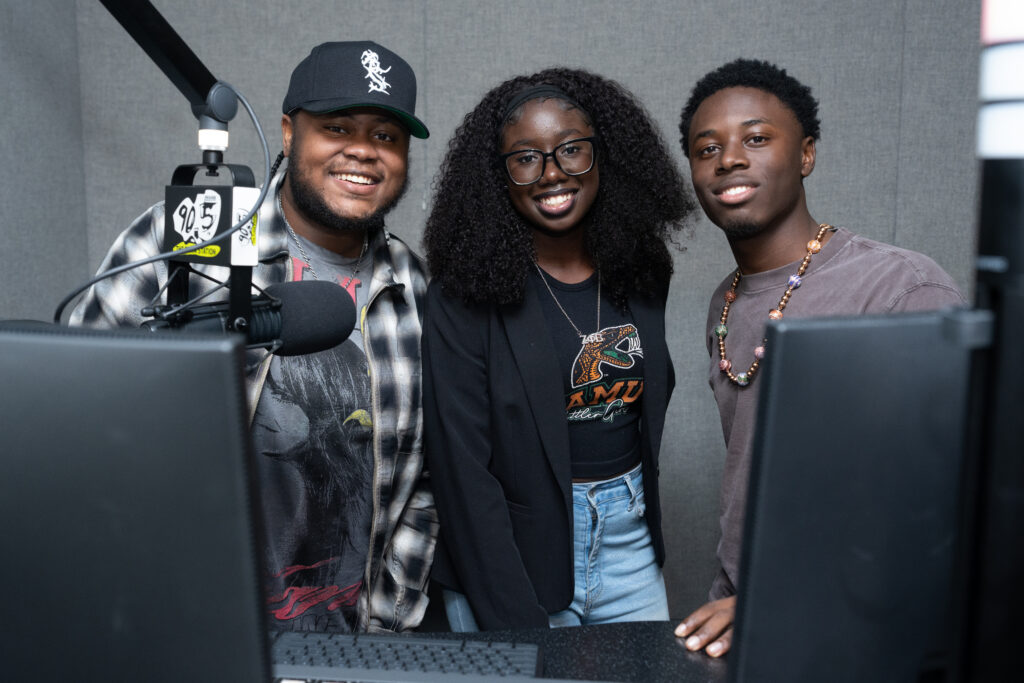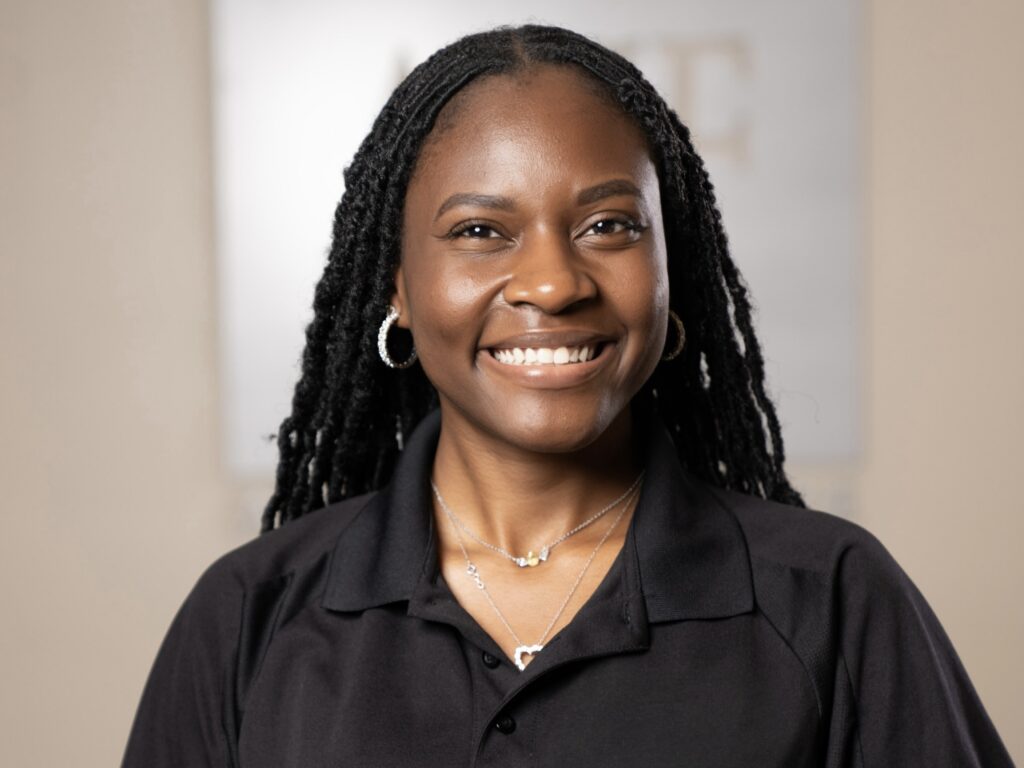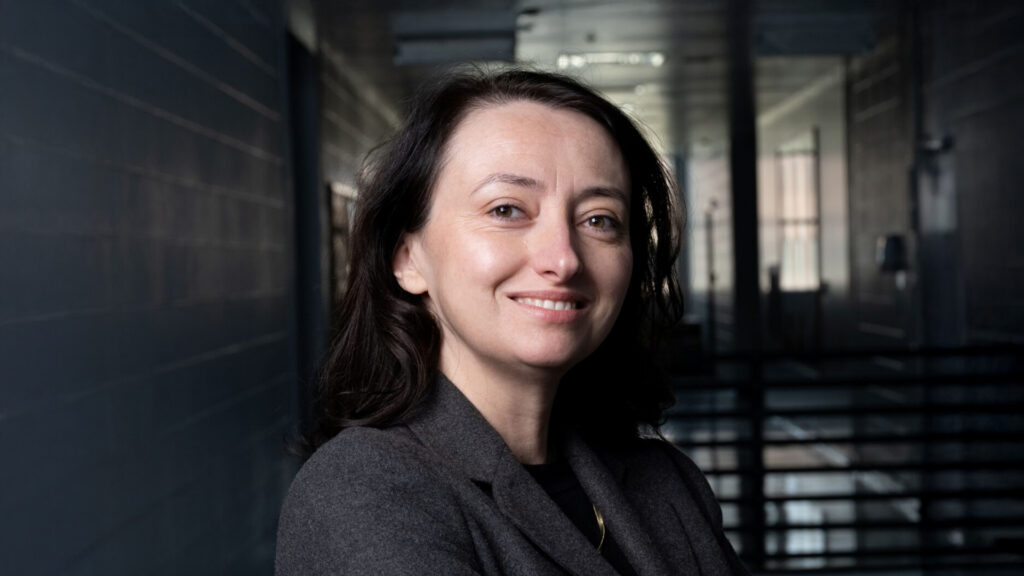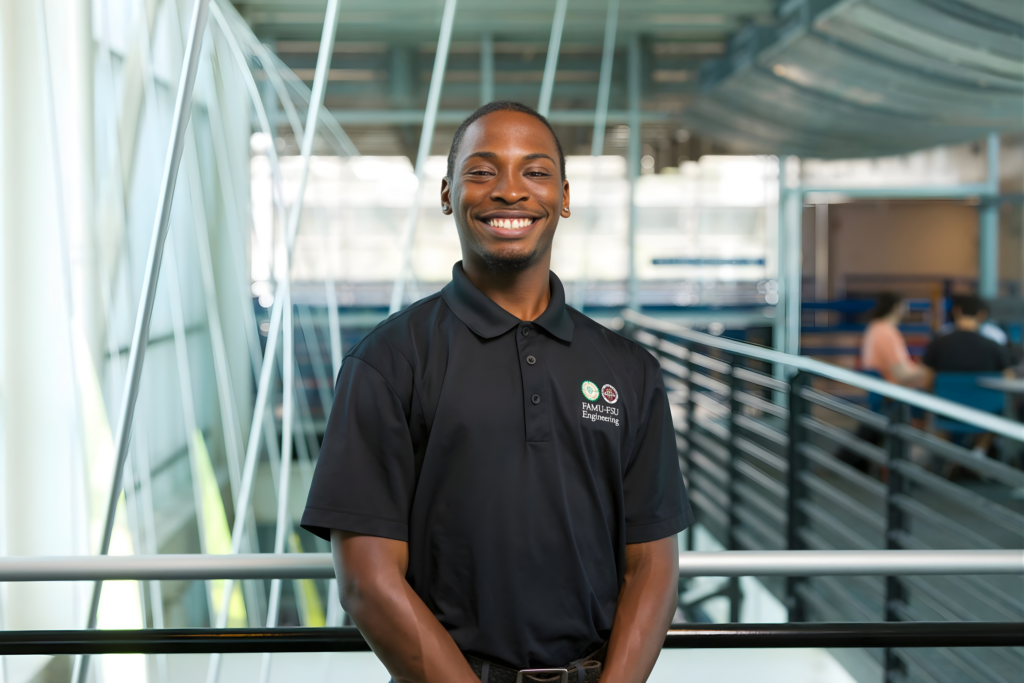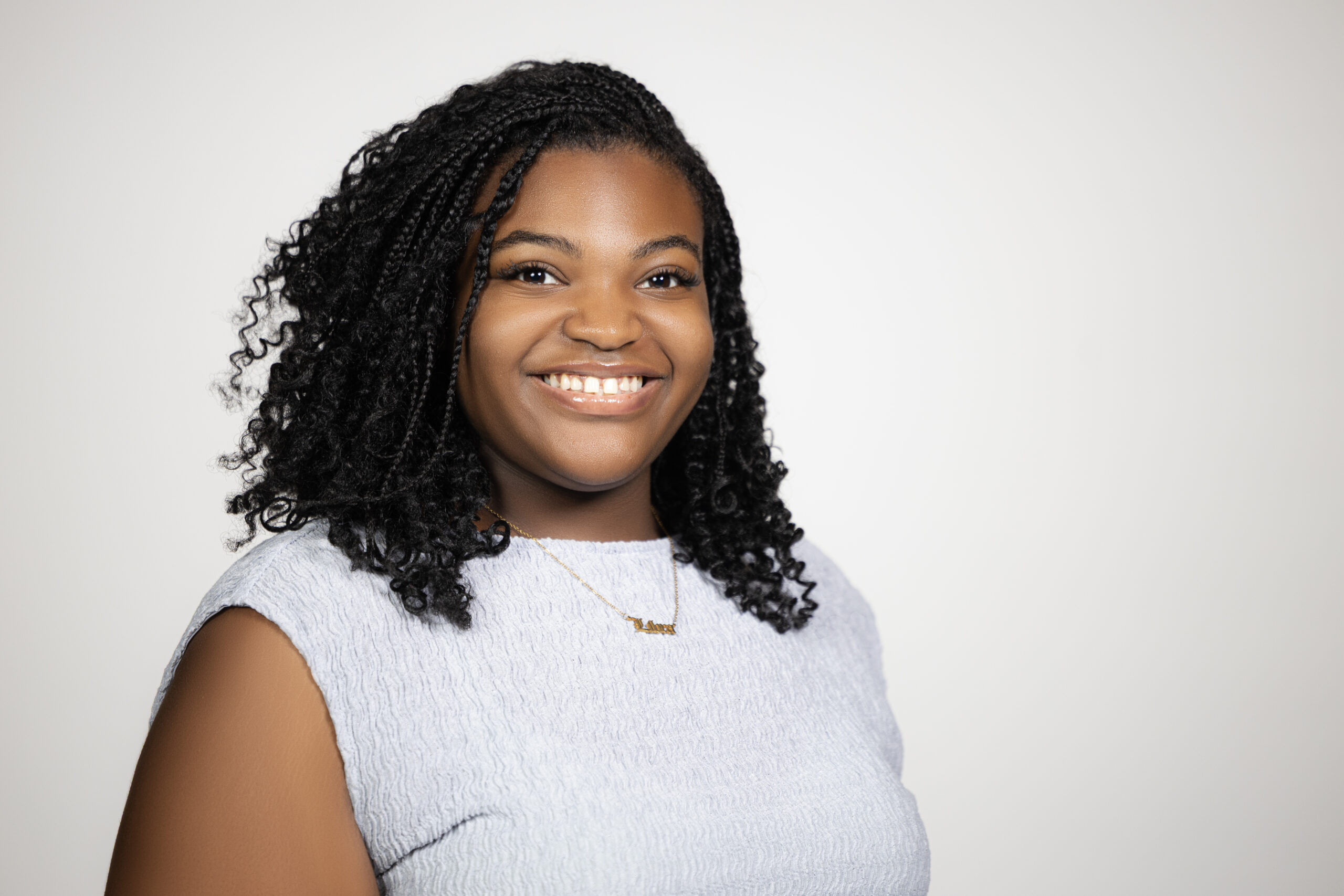
Sears’ achievement continues the SJGC-POLITICO training pipeline, first forged by alumnus Nolan McCaskill joining the program’s inaugural class as a student in 2014.
At the intersection of power, politics, and policy, there must be truth-tellers who are steadfast in holding those leading our government accountable.
That’s where POLITICO comes in. As the largest politics- and policy-focused newsroom based in the U.S., the company is ensuring the next generation of journalists is equipped to cover those in power with accuracy and integrity. Simultaneously, the news organization is helping America’s newsrooms become more diverse through its prestigious development programs.
One of the emerging journalists POLITICO is preparing is Janelle Ismay Sears, a senior broadcast journalism student at Florida A&M University’s School of Journalism & Graphic Communication (FAMU SJGC). She was one of only 15 college journalists selected from a competitive national applicant pool to join the 2025 class of the POLITICO Journalism Institute (PJI) in May. The class also included two promising high school students from the Washington Association of Black Journalists’ Urban Journalism Workshop.
A 10-day intensive and interactive program, the institute features workshops and sessions with industry leaders, newsroom team pairings, guided tours of Congress and other historic locations where national news unfolds. The students balanced their time during the program between the POLITICO newsroom in Arlington, Va., and American University, one of its partners. The Maynard Institute for Journalism Education is also a program partner.
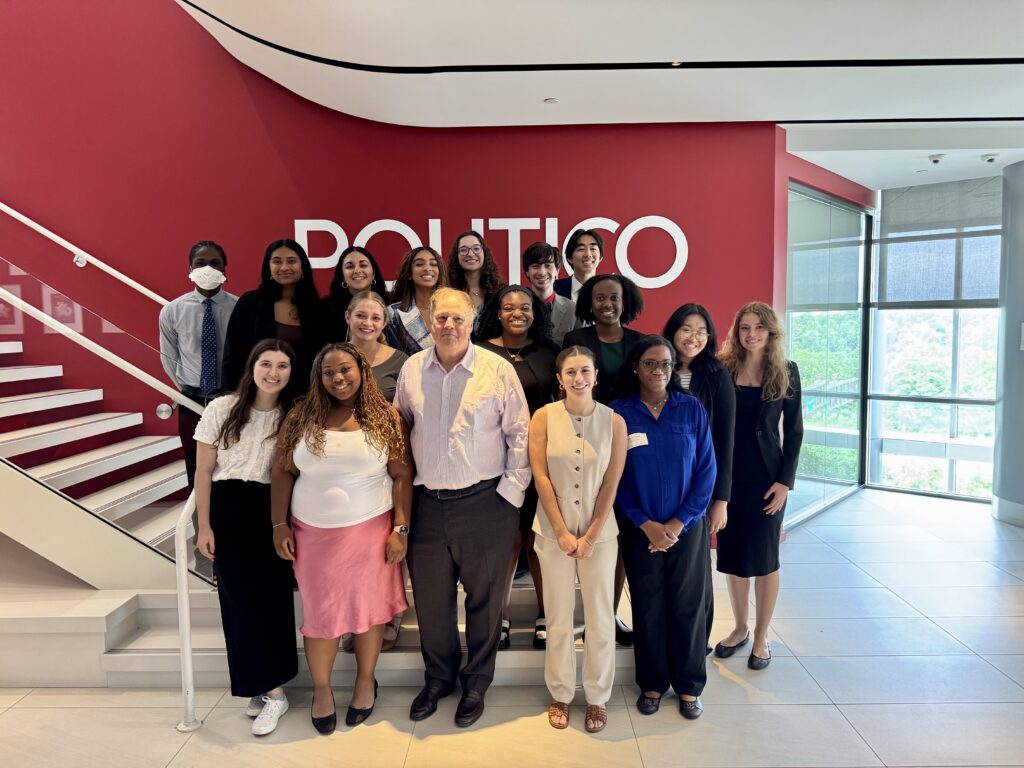
Sears said being selected to participate in the program helped to shape what her future in media will look like.
“From building a network of reporters who have infinite knowledge of how to navigate the field to exploring the hard and soft skills needed to excel in any beat, my horizons were undoubtedly broadened,” she said. “The program allowed us to immerse ourselves in the fast-paced culture of policy and politics and explore the many places you can take your career.”
POLITICO editorial director John Yearwood emphasized that the institute has established a reputation as a launching pad for success in journalism.
“The PJI program continues to be a cornerstone of our diversity initiatives. Alumni have gone on to make significant contributions not only to our newsroom but to journalism organizations across the U.S. and globally,” he said.
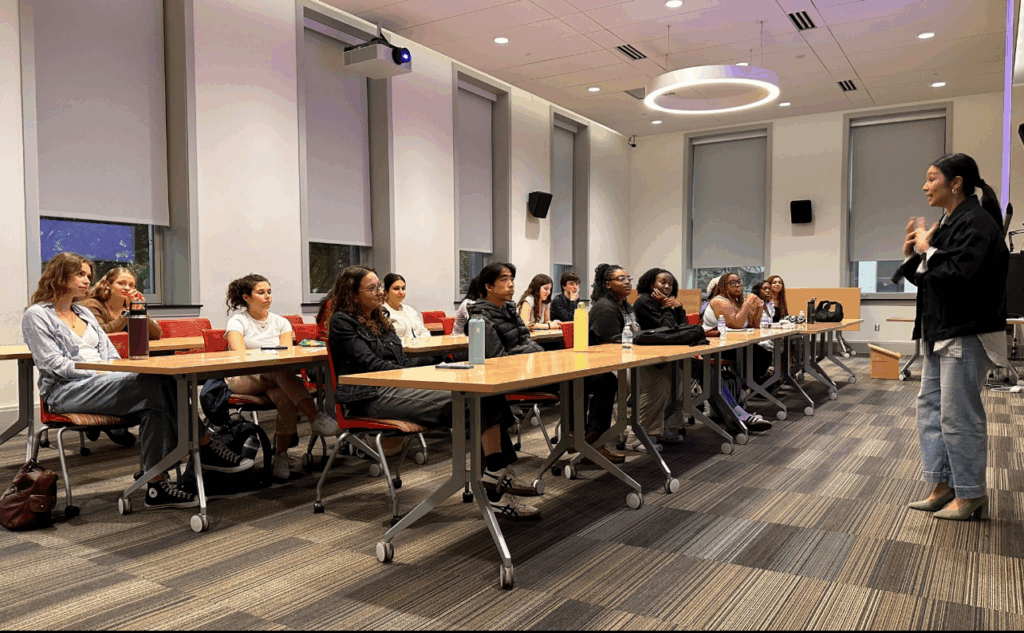
Her selection to be trained by POLITICO builds on FAMU SJGC’s legacy of producing leading political reporters and follows the path of alumni like Nolan McCaskill, whose career took off after he was named to PJI’s inaugural class in 2014.
In a Q&A spotlighting his success, McCaskill told POLITICO, “PJI changed my entire trajectory.
The 2014 broadcast journalism graduate has since covered the White House, Congress, state politics, campaigns, and courts for POLITICO, the Los Angeles Times, The Messenger, and, most recently, The Dallas Morning News. When asked about the importance of programs such as PJI and HBCU journalism schools, McCaskill explained that different perspectives matter in journalism because politics affects everyone.
“People and communities suffer when they don’t see or hear how policy proposals may impact them and their families,” said the former FAMUAN editor-in-chief and FAMU-TV 20 producer, who now serves as a mentor to PJI participants. “As journalists, who we talk to, what we report, and how we report it are largely shaped by our training and our newsroom. But our identities also matter. People of different backgrounds bring that part of themselves to their work, and the public benefits from richer, more nuanced, authoritative reporting.”
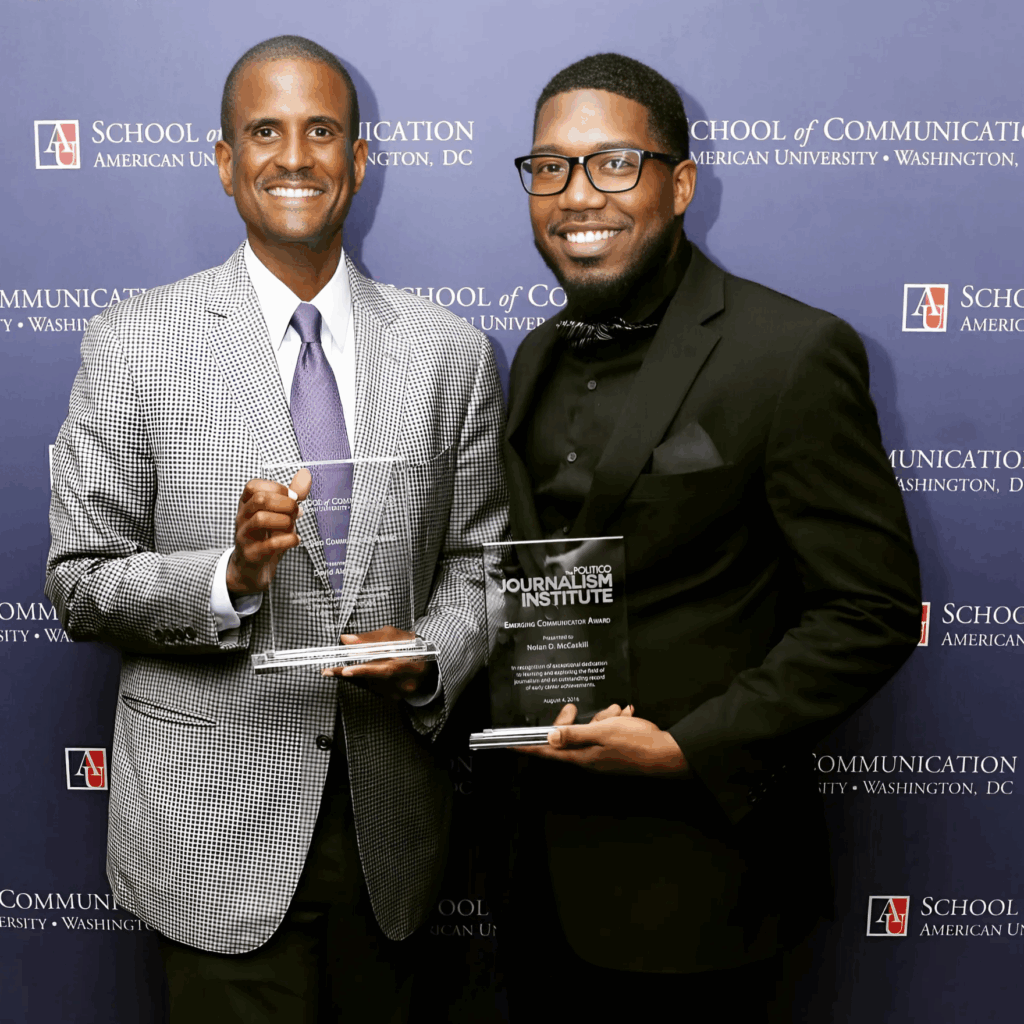
Sears is on pace to become the type of authoritative reporter McCaskill mentioned. Her portfolio of political, community, and policy journalism already includes producing and contributing to the 2024 election night special that aired on WANM-FM 90.5 and delivering real-time reporting and analysis for national and local political races as a news director and on-air talent.
“I knew I wanted to dive deeper into it,” she said about the fire lit in her after those experiences.
She’s also served as a news writer for The FAMUAN, where she’s leveraged her multimedia journalism skills to shed light on stories such as protests at the Florida State Capitol Building against gun violence and reducing the eligibility age to purchase firearms. Her work at the student newspaper has provided an in-depth look at what citizens are expecting from the Florida legislature on issues of immigration, abortion, violence, and racial and gender identity. And she’s examined how colleges and universities have been impacted by freedom of speech threats under the current political climate.
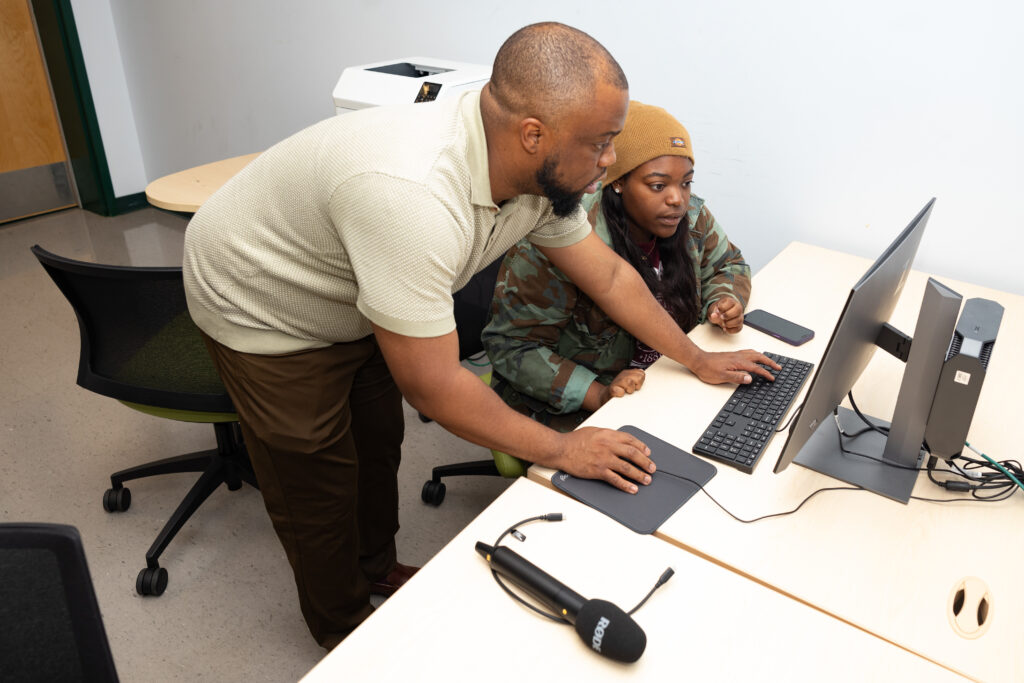
“After working on the WANM 2024 election special and taking a TV news course, my passion was rekindled for covering politics and issues that affect how we as communities and citizens navigate our everyday lives based on decisions that our government leaders make,” Sears said.
She also expressed gratitude for the experiential learning and support system FAMU SJGC offers its students. She used Terrence Ward, WANM’s director, as an example, who is an industry veteran and alumnus.
“Mr. Ward has been a great help in building my skills and narrowing down how I want to translate them into a career,” Sears said. “SJGC has an expansive alumni network and reputation in the journalism field.”
While Sears seeks to impact the greater community by keeping them in tune with the happenings of the halls of government, she’s also passionate about exposing the uniqueness of Black culture.
In addition to her contributions to the news side of student media, Sears has served as multimedia director at FAMU SJGC’s JOURNEY Magazine and is the co-host of “The Street Lights,” a pop-culture and media-focused podcast through the lens of two college-aged Black women creatives, which is recorded at WANM.
“I’d like to do it all,” Sears said. “From reporting to radio to TV, I even want to write a book. You never know when the perfect opportunity for you is there until it’s right in front of your face.”
Watch a short clip of Sears being interviewed during PJI about her passion for political journalism below.
Video courtesy: Whitney Harris/YouTube
